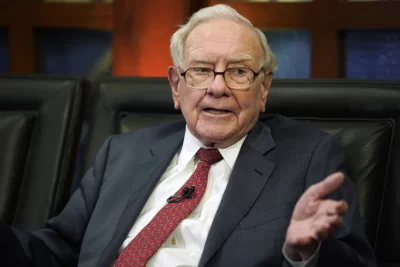
Wall Street ticked higher early Thursday ahead of the most recent data release on U.S. consumer inflation and a meeting of oil producers in Vienna.
Futures for the S&P 500 rose 0.3% before the bell and futures for the Dow Jones Industrial Average were 0.5% higher. Every sector of the S&P 500 showed gains early Thursday.
The U.S. government on Thursday reports on consumer spending for October, which includes the Federal Reserve’s preferred measure of inflation. Economists expect that measure to continue easing, as it has been since the middle of 2022. The Federal Reserve is expected to keep its benchmark interest rate steady when it meets in December and to eventually begin paring rates down if inflation remains under control.
Also Thursday, the Labor Department issues its latest weekly layoff data. The job market has remained resilient in the face of higher interest rates, though there have been some signs that it is cooling.
Salesforce jumped 9.3% in off-hours trading after the business software maker and owner of the Slack communications platform beat Wall Street’s sales and profit forecasts.
Trading in ImmunoGen was halted after the drugmaker said it was being acquired by AbbVie in a $10 billion deal.
Elsewhere, in Asia, Tokyo’s Nikkei 225 gained 0.5% on Thursday to 33,486.89.
The Hang Seng in Hong Kong was up 0.2% at 17,030.49. The Shanghai Composite index added 0.3% to 3,029.67.
An official survey of Chinese factory managers showed manufacturing activity slowed in November, indicating further weakness in the world’s second-largest economy despite recent signs of improvement.
“The latest surveys suggest that the economy continued to lose steam in November. However, they may be overstating the extent of slowdown due to sentiment effects,” Sheana Yue of Capital Economics said in a commentary.
South Korea’s Kospi advanced 0.6% to 2,535.29. In Australia, the S&P/ASX 200 climbed 0.7% to 7,087.30. In Bangkok, the SET fell 0.7%. India’s Sensex gained 0.2% and Taiwan’s Taiex picked up 0.4%.
The members of OPEC+, whose oil income props up their economies, were trying to forge a consensus on production cuts after postponing a meeting originally set for Sunday.
At midday in Europe, Germany’s DAX and the CAC 40 in Paris both moved 0.5% higher, while Britain’s FTSE 100 picked up 0.6%.
The latest European data showed that inflation dropped more than expected to 2.4% in November, the lowest in more than two years. P lummeting energy costs have eased a cost-of-living crisis but higher interest rates squeeze the economy’s ability to grow.
The new figure is close to the European Central Bank’s inflation target of 2% following a rapid series of interest rate hikes dating to summer 2022. But the tradeoff has been stalled economic growth.
U.S. benchmark crude oil climbed 62 cents to $78.48 a barrel in electronic trading on the New York Mercantile Exchange. It gained $1.45 on Wednesday to $77.86 a barrel.
Brent crude, the international standard, added 68 cents to $83.56 a barrel.
Treasury yields fell, taking more pressure off of stocks. The yield on the 10-year Treasury, which influences mortgage rates, inched back up to 4.29% from 4.26% late Wednesday. The yield on the 2-year Treasury settled at 4.65% after falling sharply Wednesday to 4.66% from 4.75%.
In currency dealings, the dollar rose to 147.63 Japanese yen from 147.24 yen. The euro fell to $1.0921 from $1.0971.
On Wednesday, the S&P 500 closed 0.1% lower and the Dow industrials gained just 0.1%. The tech-heavy Nasdaq composite fell 0.2% to 14,258.49.







